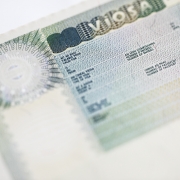RECENT SUPREME COURT CASE UPHOLDS MINISTER’S REFUSAL TO EXTEND WORKING HOLIDAY VISA
The Supreme Court has recently delivered a judgement in Jaimee Middelkamp v Minister for Justice and Equality and Irish Human Rights and Equality Commission [2023] IESC 2.
The case concerned a Canadian woman who was resident in Ireland pursuant to the Working Holiday Authorisation Scheme, which allows participants between the ages of 18 and 35 to travel to the State to study and work for a limited maximum stay of two years. Ms Middelkamp arrived in the State in 2018 under this Scheme.
Ms Middelkamp made an application under s.4(7) of the Immigration Act 2004 before the expiry of her permission, seeking an extended entitlement to remain in Ireland. In her application, Ms Middelkamp highlighted that her husband, a Canadian citizen, was to remain resident in the State for two more years to pursue his studies and that she did not wish to separate from him.
This application was refused by the Minister in January 2020, citing the interests of public policy and the common good in maintaining the integrity of the immigration system. The Minister’s decision stated that the appellant’s rights to family life under Art.8 ECHR were not affected by this decision.
Ms Middelkamp commenced judicial review proceedings seeking to quash the Minister’s decision, arguing that this violated her right to family life under Art.8 ECHR. The High Court granted an order of certiorari quashing the Minister’s decision. This was then appealed to the Supreme Court. The Supreme Court found that Barrett J in the High Court erred in his decision and upheld the decision of the Minister to refuse an extension of Ms Middelkamp’s permission.
Hogan J of the Supreme Court found that the Minister’s decision did interfere with Ms Middelkamp’s right to family life under Art.8(1) ECHR, as its effect was to oblige her to separate from her husband for two years. However, he found that this interference was justified as being necessary in a democratic society. Hogan J highlighted that there was a strong public interest in ensuring that the strict terms of the Working Holiday Authorisation Scheme were adhered to, the terms of which Ms Middelkamp expressly agreed to. If the terms of such Schemes were not adhered to, the State’s capacity to operate these limited-time Schemes would be compromised.
Hogan J found that the Minister’s decision letter gave sufficiently detailed reasons for the refusal. He found that although the Minister was in error in stating that Ms Middelkamp’s Art.8 ECHR rights were not engaged by the decision, it was implicit in the decision that although these rights were engaged, they did not prevail against broader public policy objectives.
This blog article has been prepared on the basis of current immigration law and policy, which is subject to change. Please keep an eye on our blog and Facebook page where articles relating to updates and changes in immigration law and policy are regularly posted.


